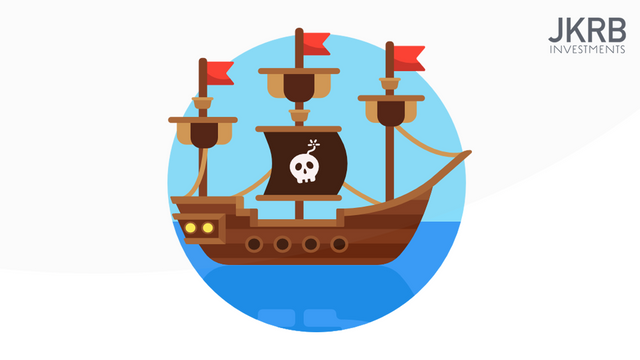A Pirate’s Life and the Blockchain

Golden Age pirates sailed the seven seas between 1690 and 1725, during this time period, piracy thrived like it had never done so before. These pirates were such innovative thinkers, rebelling against hardship with progressive ideas they still have an impact today.
One of these ideas was fair pay. The majority of pirates were ex-Royal Navy or Merchant Navy personnel, in this time period, those in the navy were routinely paid less than promised and quite often much later than scheduled.
In retaliation to this, pirates practised fair pay for all members of the crew. Captains and quartermasters received 3 to 4 shares of any pirated loot. Doctors and gunners were given two shares, whilst the rest of the crew received one share each.
If we take the present day, the ratio between a CEO’s pay and that of the lowest paid worker of a business can be as significant as 384 to 1. Whilst at more progressive companies, it can be as low as 10 to 1, still a far cry from the 4 to 1 ratio that pirate crew members experienced.
Health care and worker compensation were also innovative aboard the ships. When you think of a pirate you usually envisage a hook for a hand, a peg for a leg and an eye patch, whilst this is a little cartoonish, it is not a million miles from the mark.
A pirate’s life came with a fairly large degree of risk, so much so that every crew member who lost a body part, be it a limb or an eye received compensation. In the Golden Age, this equated to 800 pieces of eight for a leg (the popular monetary system during this period), 600 for an arm and 100 for an eye. In addition to this, if an injury rendered you unable to perform your duty, efforts were made to find a position in which you could thrive in.
It is important when referencing pirates to also reference rum! Sir Francis Drake is credited with being the first to mix juice and sugar into an alcoholic beverage, intern creating the world’s first cocktail. This occurred almost 300 years before the more mainstream mixed drink, ‘the Old Fashioned’ was invited in New York.
From the above, you can see that pirates were not necessarily just thuggish criminals, but highly principled rebels who were fed up with being exploited by governments, which at that time, were colonising and robbing others.
Looking today, it is plausible to draw parallels from previous pirate viewpoints and blockchain technology, which is creating waves only comparable to the inception of the internet.
Bitcoin, Ethereum and other cryptocurrencies offer an alternative financial system, where power is redistributed away from financial institutions and towards its users via an immutable ledger of every transaction ever made.
Breaking and remaking rules, fighting for fairness and reorganising how things are done, blockchain technology which was conceived at the edges is now becoming a principle adopted by the mainstream.